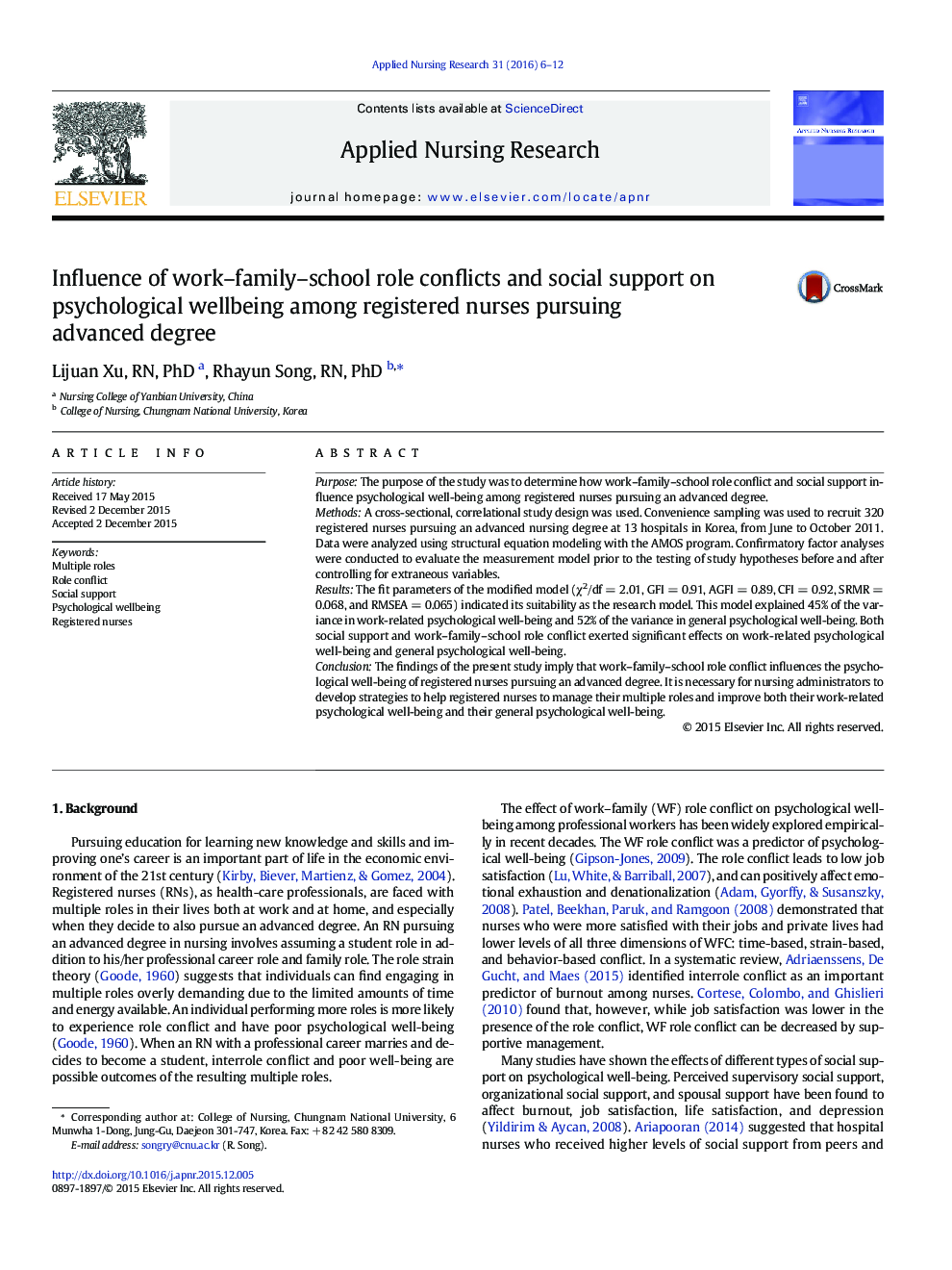| Article ID | Journal | Published Year | Pages | File Type |
|---|---|---|---|---|
| 2644940 | Applied Nursing Research | 2016 | 7 Pages |
PurposeThe purpose of the study was to determine how work–family–school role conflict and social support influence psychological well-being among registered nurses pursuing an advanced degree.MethodsA cross-sectional, correlational study design was used. Convenience sampling was used to recruit 320 registered nurses pursuing an advanced nursing degree at 13 hospitals in Korea, from June to October 2011. Data were analyzed using structural equation modeling with the AMOS program. Confirmatory factor analyses were conducted to evaluate the measurement model prior to the testing of study hypotheses before and after controlling for extraneous variables.ResultsThe fit parameters of the modified model (χ2/df = 2.01, GFI = 0.91, AGFI = 0.89, CFI = 0.92, SRMR = 0.068, and RMSEA = 0.065) indicated its suitability as the research model. This model explained 45% of the variance in work-related psychological well-being and 52% of the variance in general psychological well-being. Both social support and work–family–school role conflict exerted significant effects on work-related psychological well-being and general psychological well-being.ConclusionThe findings of the present study imply that work–family–school role conflict influences the psychological well-being of registered nurses pursuing an advanced degree. It is necessary for nursing administrators to develop strategies to help registered nurses to manage their multiple roles and improve both their work-related psychological well-being and their general psychological well-being.
